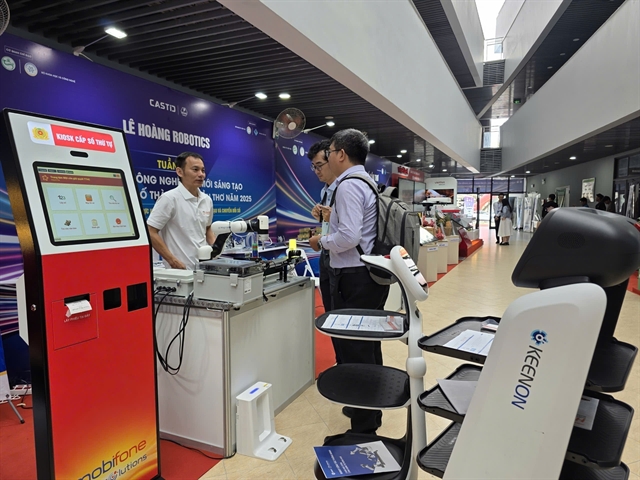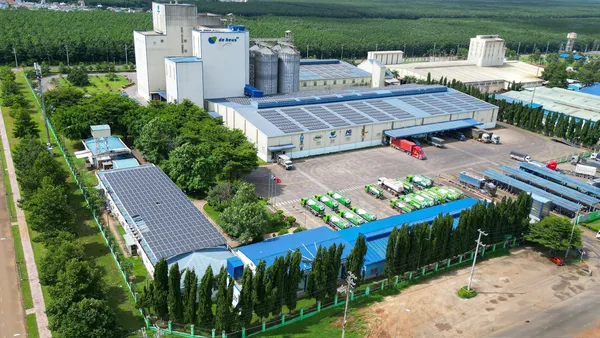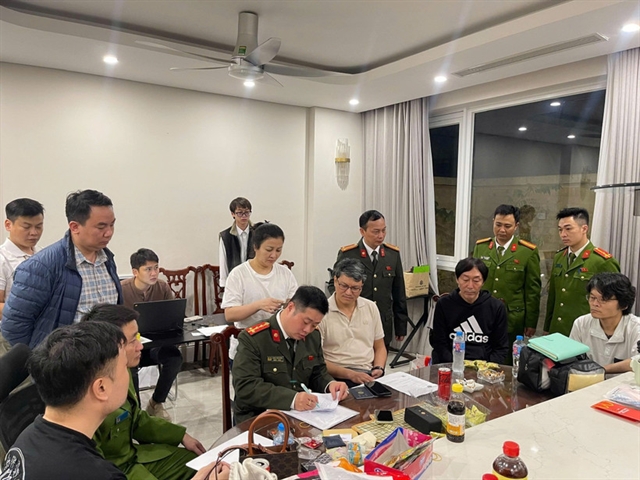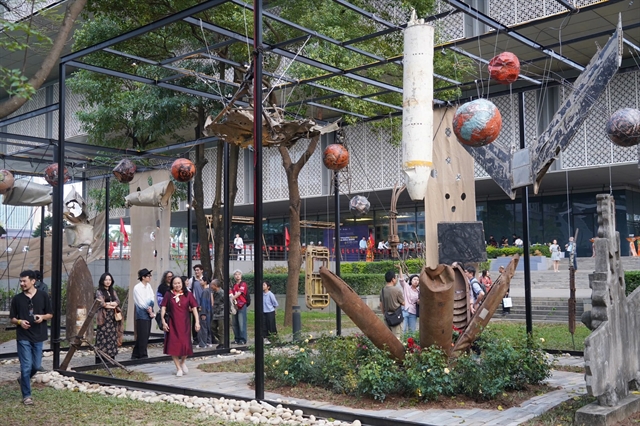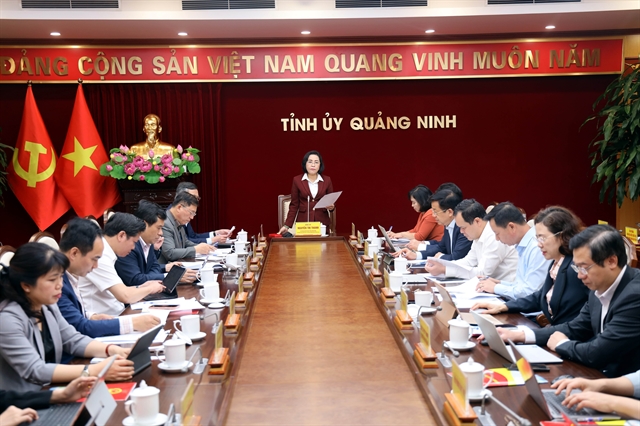 Society
Society
.jpg)
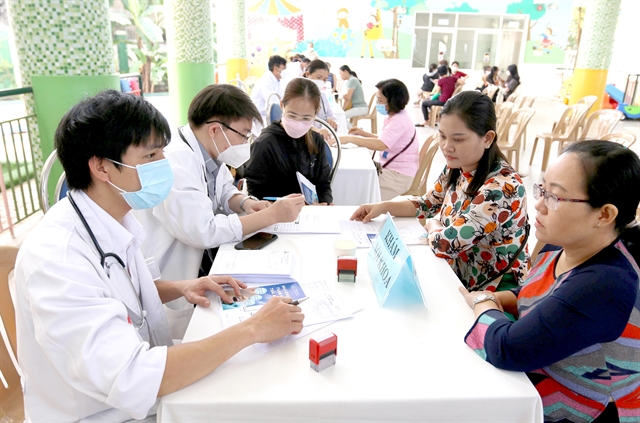 |
| Female workers in HCM City receive free health checkups at an event held by the city's labour federation. — VNA/VNS Photo Thanh Vũ |
HCM CITY — While social welfare policies have taken into account gender equality, experts said that the actual benefits delivered to women, particularly those in vulnerable groups, still have numerous shortcomings.
They include women of ethnic minorities, those with disabilities, as well as migrants and senior citizens.
Hà Thị Nga, chairwoman of the Vietnam Women’s Union (VWU), said that the migration of female workers in the southern region remained complicated.
Due to the gaps in living standards and employment opportunities, most of the workforce had been moving from the Cửu Long (Mekong) Delta to the southeastern region, which has a high urbanisation rate and multiple industrial zones such as HCM City, Bình Dương and Đồng Nai provinces.
These migration flows led to multiple social issues, particularly regarding migrant women’s access to development policies at their destination, said Nga.
According to policies, migrant women are granted the most access to daily life essentials, such as accommodation, electricity, water and emergency support in case of accidents, robbery or violence.
They also benefit from health insurance and health care policies.
However, in reality, more than 37 per cent of them receive no support, according to Nga. The situation is worse among migrant women in poverty and the informal economy, working unstable jobs such as street vendors, lottery ticket sellers and seasonal workers.
These figures revealed their limited access to policies that can benefit them.
The government has also promulgated multiple policies related to health care, employment and culture that ensure the rights and policy accessibility of senior citizens.
However, in addition to the lack of special policies for elder women, senior citizens’ access to these benefits and services remains limited.
The VWU chairwoman said that existing and new social issues were affecting social policy implementation for groups of vulnerable women, such as the lack of employment, livelihoods, accommodation and social welfare at the local level, the ongoing effects of the pandemic; and cases of violence towards women and elder people.
This was due to the generic action plans and unclear solutions in several localities, while communication activities and awareness of laws related to women were modest, she said.
Policies in practice
VWU chairwoman Hà Thị Nga said that to have comprehensive policies that cover all target groups for the effective implementation of Việt Nam’s development goals, three national target programmes for the 2021-2025 period had been deployed - one of which focuses on the socio-economic development of ethnic minority and mountainous regions.
Meanwhile, the project on gender equality and addressing urgent issues related to women and children had been approved by the National Assembly as part of these national programmes.
The project was the first of its kind and was assigned to the VWU for implementation by the government.
Numerous supporting models and services for migrant women had been realised in the southern region, such as the one-stop service office (OSSO) to help migrant women return home in Hậu Giang Province and Cần Thơ City, the community advisory group in HCM City and the club of women landlords in Bình Dương Province, among others.
These groups and communities helped migrant women better access information and community engagement activities at their destinations.
The VWU also continued their partnership with the Việt Nam Bank for Social Policies to implement preferential credit programmes, supporting women in securing loans for production and business growth, Nga said.
The union’s chairwoman added that VWU would also work with the State Bank to implement comprehensive financial and credit policies for rural development and to facilitate women’s access to credit sources, Nga said.
A province with a significant population of ethnic minorities and successful results in supporting women, Sóc Trăng has been mobilising investment and resources for areas of difficulty and for ethnic minority women.
The provincial Party Secretary Lâm Văn Mẫn said that with funding from the community, companies and financial organisations, women of ethnic minorities had been encouraged to build their own businesses to improve their livelihoods, employment and income.
Sóc Trăng also put the focus on helping ethnic minority women access supporting policies and services related to education, culture and health care.
In Đồng Nai Province, the local women’s union was also working to raise policy awareness related to gender equality for women of ethnic minorities or in the mountainous areas.
The province was also striving to improve the efficiency of women-led cooperatives, create job opportunities, provide vocational training and access to loans for business operations, as well as periodic prenatal check-ups at local health facilities.
Bùi Tuấn Quang, deputy head of the Central Mass Mobilisation Commission, required that Party committees and mass mobilisation commissions at the local level continue to monitor and collect the public’s opinions, thereby proposing specific measures to the authorities to improve support for women at their locality. — VNS
.jpg)
